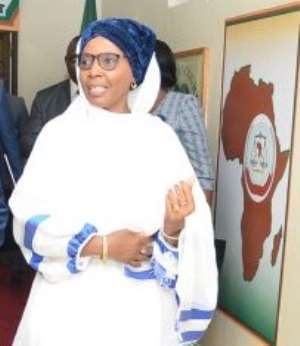
The African Court on Human and Peoples’ Rights will begin its 65th Ordinary Session on Monday, May 30th, 2022, at the seat of the Court in Arusha, Tanzania.
The Judges, among others, will examine a number of applications during the four-week session that will close on June 24th, 2022 a document signed by Dr Robert Eno, African Court Registrar and copied to the Communication for Development and Advocacy Consult (CDA Consult) in Tema has stated.
During the session, the African Court will deliver Judgements on June 23rd, which will be live streamed via link: https://www.youtube.com/user/africancourt/live
The African Court is composed of eleven Judges, national of the Member States of the African Union elected in their individual capacity; and meets four times a year in Ordinary Sessions and may hold Extra-Ordinary Sessions.
The African Court explained that an application before it can be filed by the African Commission on Human and Peoples’ Rights, State Parties to the Protocol or African Intergovernmental Organizations, and non-governmental organizations with observer status before the African Commission and individuals.
It explained that as long as the State against which the application is brought has deposited the declaration recognizing the jurisdiction of the Court to accept cases from individuals and NGOs.
According to the African Court, the decision of whether an application can be considered or not depends on whether it deals with a matter that is within the Court’s Jurisdiction.
The jurisdiction is the competence of the African Court to decide on matters brought before it.
The scope of the jurisdiction of the African Court is set out in the Protocol to the African Charter and according to this instrument, the Court has material jurisdiction over allegations relating to violations of human rights contained in the African Charter on Human and Peoples’ Rights or any other human rights instrument ratified by the State concerned.
It explained that material jurisdiction is satisfied if the allegations relate to violations of human rights contained in the African Charter on Human and Peoples’ Rights or any other human rights instrument ratified by the State concerned.
Personal jurisdiction refers to the entities which can bring a case before the Court. In general, that are the African Commission, State Parties to the Protocol, and African Intergovernmental organizations.
Individuals and non-governmental organizations may only directly bring cases before the Court if the State against which such application is made has made a special declaration accepting this procedure.
Temporal jurisdiction refers to the fact that the alleged violations must have occurred after the State concerned ratified the Protocol; Territorial jurisdiction requires the alleged violations to have taken place in the State concerned.
According to the African Court, the application should indicate the names and addresses of the person designated as the Applicant’s representative; include a summary of the facts of the case and of the evidence that will be adduced, and indicate clear particulars of the Applicant and of the party or parties against whom the Application has been brought.
It must also specify the alleged violation; demonstrate the evidence of exhaustion of local remedies or the inordinate delay of such local remedies; indicate the orders or injunctions sought; and indicate whether an Applicant on his/her on behalf or on behalf of the victim wishes to be granted reparations.





 Dumsor: Don't rush to demand timetable; the problem may be temporary — Atik Moha...
Dumsor: Don't rush to demand timetable; the problem may be temporary — Atik Moha...
 Space X Starlink’s satellite broadband approved in Ghana — NCA
Space X Starlink’s satellite broadband approved in Ghana — NCA
 2024 election will be decided on the grounds of the economy; choice of running m...
2024 election will be decided on the grounds of the economy; choice of running m...
 Dumsor: We're demanding less; just give us a timetable — Kwesi Pratt to ECG
Dumsor: We're demanding less; just give us a timetable — Kwesi Pratt to ECG
 Do I have to apologise for doing my security work, I won’t – Simon Osei-Mensah r...
Do I have to apologise for doing my security work, I won’t – Simon Osei-Mensah r...
 All my businesses have collapsed under Akufo-Addo — NDC Central regional chair
All my businesses have collapsed under Akufo-Addo — NDC Central regional chair
 Military, Prison Officers clash in Bawku, three injured
Military, Prison Officers clash in Bawku, three injured
 GRA-SML contract: MFWA files RTI request demanding KPMG report
GRA-SML contract: MFWA files RTI request demanding KPMG report
 Court threatens to call second accused to testify if NDC's Ofosu Ampofo fails to...
Court threatens to call second accused to testify if NDC's Ofosu Ampofo fails to...
 Family accuses hospital of medical negligence, extortion in death of 17-year-old...
Family accuses hospital of medical negligence, extortion in death of 17-year-old...
